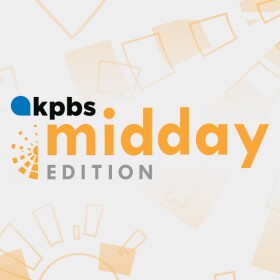The San Diego Unified School District announced plans Thursday to offer voluntary in-person learning sessions for elementary school students identified as experiencing learning loss.
While the district is preparing to open its 2020-21 school year Monday for remote, online learning for all students, some children who have faced learning challenges due to the COVID-19 pandemic may be offered appointments to take part in the in-person sessions, which could begin as soon as late September, according to the district.
Sessions will be held in spaces "with adequate air exchange, including MERV-13 air filters and/or portable ventilation units," according to the district.
Students will be identified by their teachers for participation based on several factors:
• Below standard, represented by an average academic mark of a 1 or 2 in Math or English Language Arts strands on their Spring 2020 report card;
• Students who do not have a Spring 2020 report card (incoming TK, K or new students to the district) and do not make progress toward grade-level standards once schools open;
• Special education students not meeting their IEP goals;
• Special education students with intense support needs;
• Students who have been recommended for an initial assessment for an IEP or require a triennial assessment, and require standardized assessment that cannot be completed online for eligibility.
"We remain committed to following the science in designing our response to the COVID-19 crisis, including all of the recommendations we received from our expert panel of UCSD science and health professionals that included a phased return to in-person instruction," said District Superintendent Cindy Marten.
"This is Phase One, which provides a measured approach to address the very real problem with learning loss, faced by our most disadvantaged students, while maintaining the strict standards put in place to protect the health and safety of all students, staff and community," Marten said.
"Online learning has created new challenges for every student. We trust our educators to identify those students most in need of additional supports to overcome those challenges," she said.
According to the district, once a student is identified for potential participation, educators will review the student's progress using formative assessments, observations and information gathered from families. Some students will be moved to appointment-based, in-person learning, while others may only need adjustments to their online learning.
RELATED: Schools Remain Cautious Even As San Diego Moves Off State’s COVID-19 Monitoring List
Student identification for the onsite learning plan will include decisions regarding transportation and meal plans.
The number of students who will be admitted to the onsite sessions is contingent upon available site staff and resources. Students who take part in the onsite sessions will still receive online learning as well, according to SDUSD.
District Board President John Lee Evans said, "Our goal continues to be reopening all of our schools for all of our students. It is tremendously encouraging that the virus has receded enough to begin phase one of that effort. This new plan for disadvantaged students proves we can be thoughtful both in our approach to the virus and in our effort to confront learning loss."








